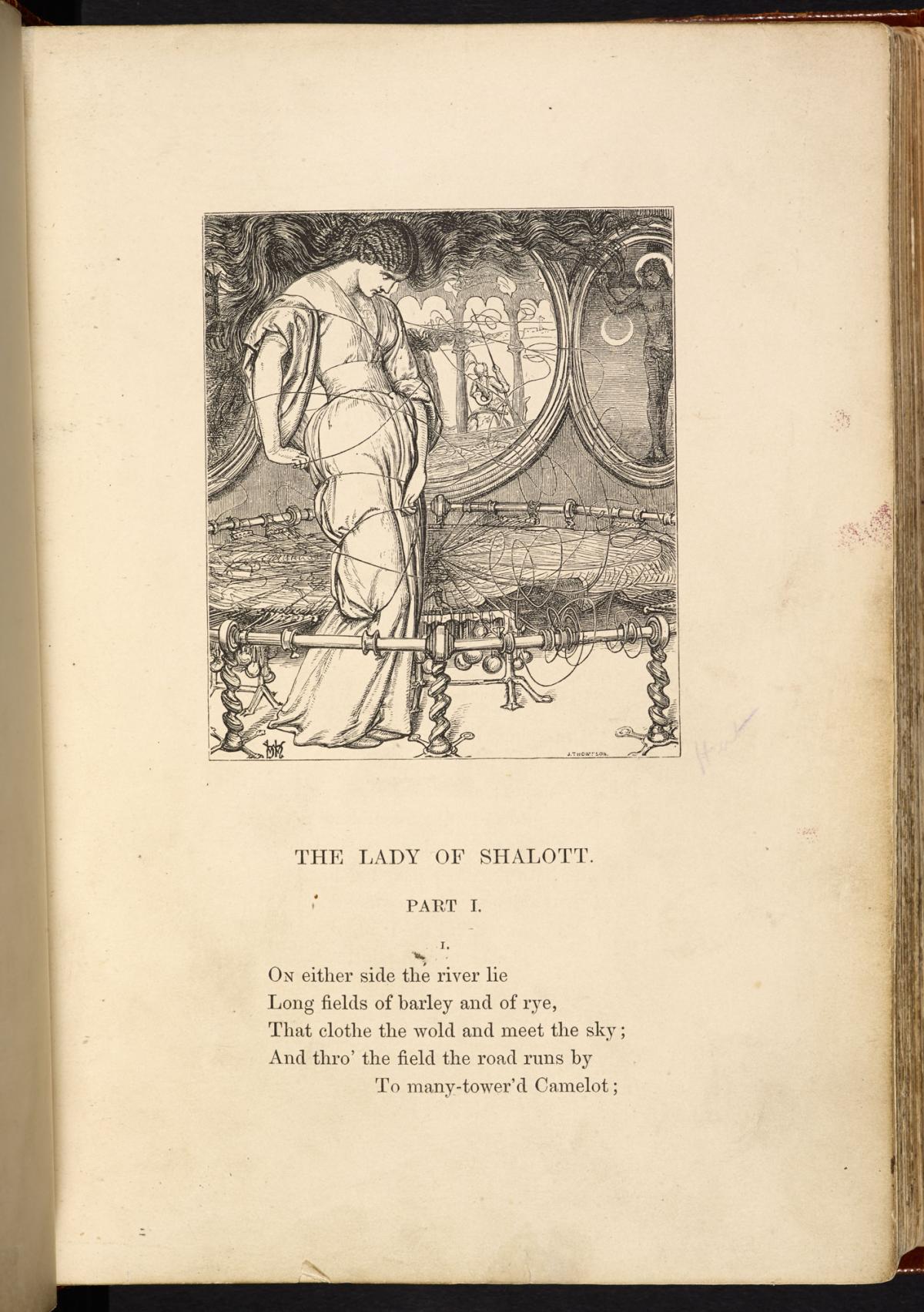British Library Moxon Edition of Poems
- Full title: Poems [Moxon edition]
- Published: 1857 , London
- Formats: Book, Illustration, Image
- Creator: Alfred Lord Tennyson, John Everett*Millais
- Usage termsPublic Domain
- Shelfmark: 11647.e.59.
- Explore this item further
- British Library: https://www.bl.uk/romantics-and-victorians/articles/an-introduction-to-the-lady-of-shalott
- British Library Description:
Alfred Lord Tennyson was much-admired by the Pre-Raphaelite artists. These artists sought inspiration from poetry and, in common with the poet, favoured the themes and legends of the medieval period.
Usually known as the Moxon Tennyson after its publisher, this lavish 1857 edition of Tennyson’s Poems is accompanied by 30 woodcut illustrations designed by Pre-Raphaelites Dante Gabriel Rossetti, John Millais and William Holman Hunt, in addition to 24 by four other Victorian artists (Thomas Creswick, J C Horsley, William Mulready and Clarkson Stanfield). It contains poems from the earlier 1830 and 1832 editions, including ‘The Lady of Shalott’ and ‘Mariana’, both illustrated here.
Success and impact of the Moxon Tennyson
On its first publication the Moxon Tennyson was neither a critical nor commercial success. This was in part due to the juxtaposition of radically different artistic styles and in part to its high price. It was also known that the poet did not approve of several of the Pre-Raphaelite illustrations; he thought that they exercised far too much artistic license.
Yet these intricate and daring designs were to have a dramatic impact on illustration. Between 1855 and 1870 the art of imaginative book and magazine illustration reached remarkable levels of quality and intensity. The Pre-Raphaelites were largely responsible for this transformation in English wood-engraving. They heralded a ‘golden age’ in which illustration was recognised as a stand-alone art form, no longer secondary to the text.
Tate



